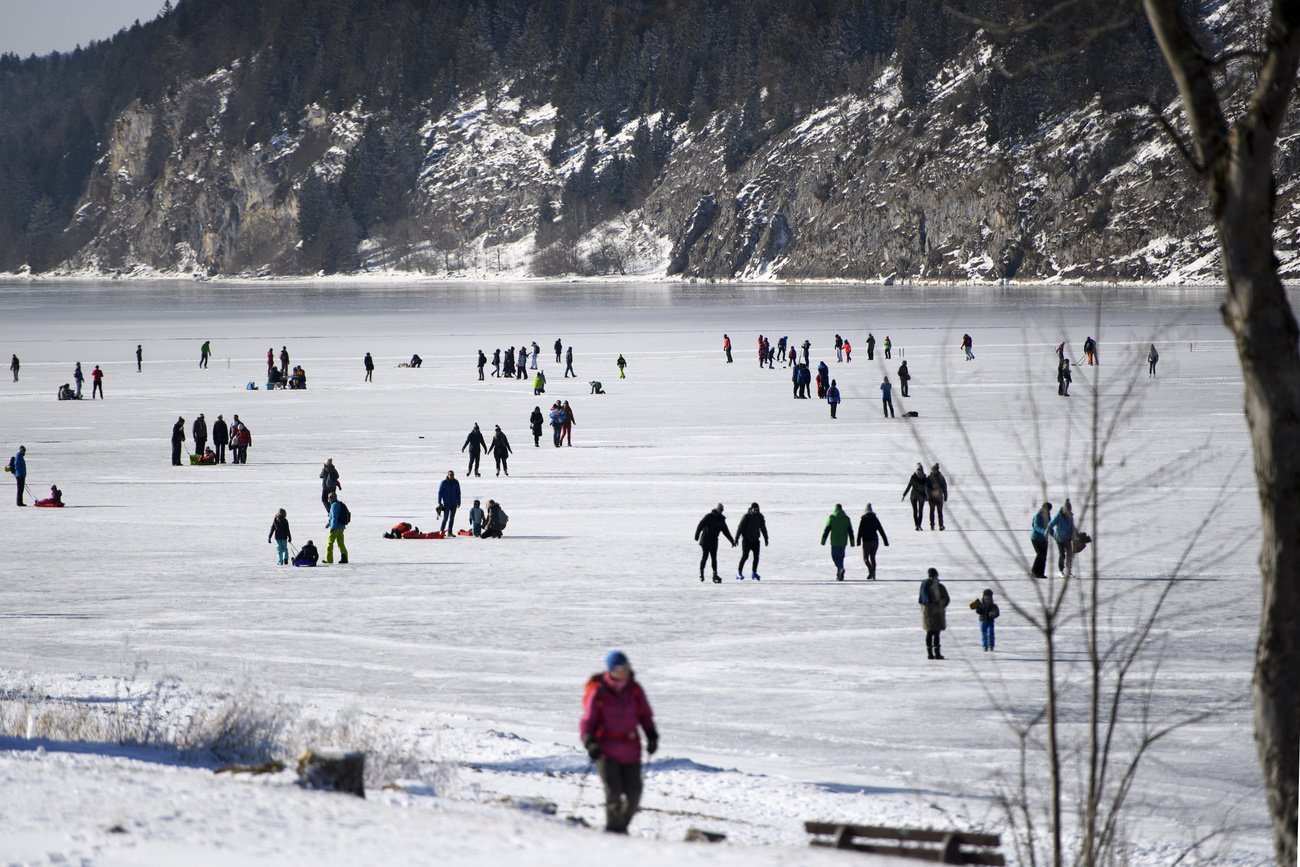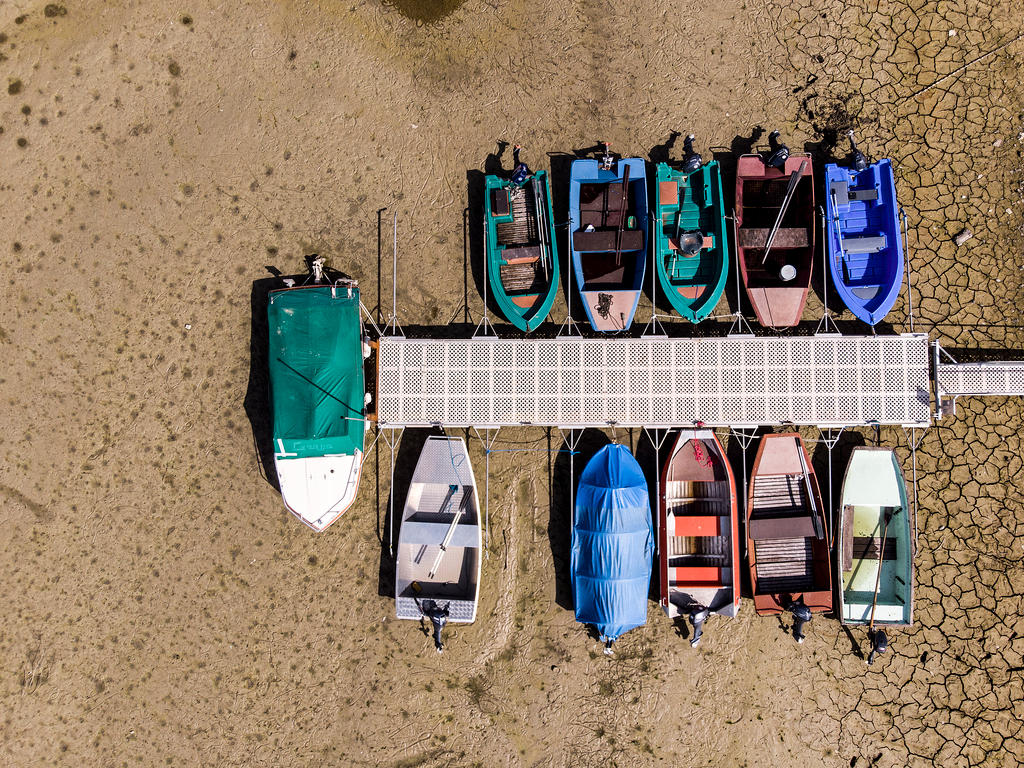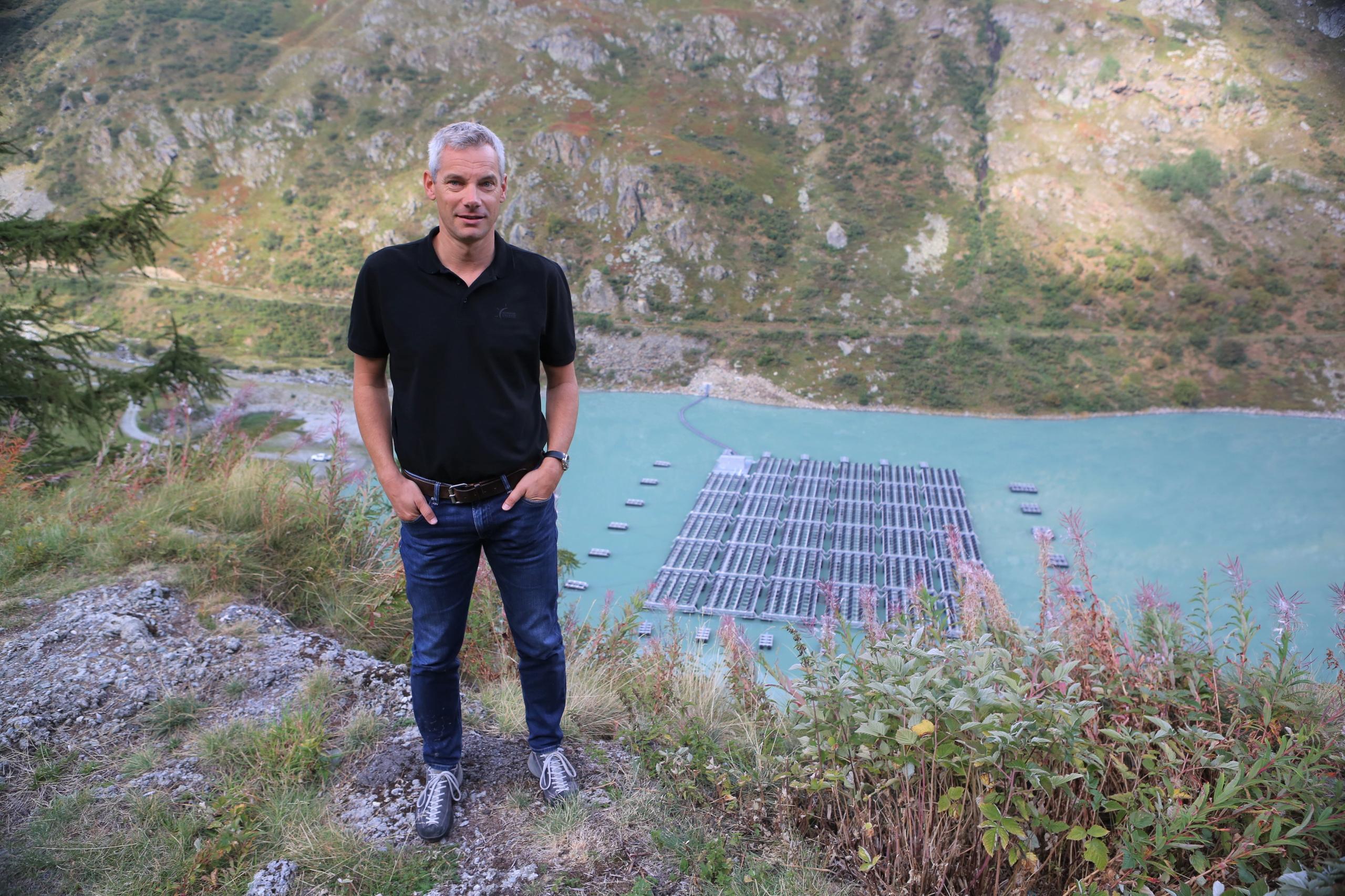
Climate change poses risks to Swiss lake ecosystems

New research shows that climate change risks altering the temperature, ice cover and mixing of many Swiss lakes – especially at medium altitudes – with major consequences for lake ecosystems.
A simulation studyExternal link carried out by the Swiss Federal Institute of Aquatic Science and Technology (Eawag) suggests that climate change is interfering with the mixing of surface and deep waters in Swiss lakes.
In many lakes at medium and high altitudes, oxygen-rich and nutrient-poor surface water mixes with depleted and nutrient-rich water from the bottom in spring and autumn. This has an influence on many chemical and ecological processes.
During those periods, the temperature of the lake is similar over its entire depth. In winter and summer, on the other hand, the deep water remains isolated from the processes at the surface. Lake ecosystems and the entire food chain, from plankton to fish, adapt to these seasonal variations.

More
Torrid time predicted for Switzerland by 2060
Ice cover loss
The Eawag researchers examined 29 Swiss lakes (located between 193-1,797 metres above sea level) based on three future climate scenarios: continuously rising greenhouse gas emissions, CO2 emissions peaking around 2050, or a global warming limit of +2°Celsius compared to 1990.
They found that if the climate heats up by more than 2°C, many lakes at mid altitudes, such as the Lac de Joux (canton Jura) or the Klöntalersee (canton Glarus), risk losing their ice cover this century. Less ice means increased vertical exchange between surface and bottom waters in winter.
“This counteracts the build-up of stable stratification in winter and therefore shortens its duration. In summer, on the other hand, the duration of stratification is prolonged, raising the risk for oxygen deficiency in deep waters,” said Eawag.
Longer periods of stratification in summer have shown to encourage the growth of algae and toxic cyanobacteria that can produce toxins harmful to humans and animals.
The mixing of lake waters at these altitudes might also become less frequent: from twice to once a year. This would have fundamental consequences for the storage of heat in lakes and for the distribution of oxygen and nutrients, says Eawag.

More
In the Swiss Alps, solar power takes to the water
Habitat changes
“The habitats of many aquatic species could change considerably as they are warmed up from above and oxygen becomes scarcer deeper down,” it said.
However, the mixing of waters in high-altitude lakes, such as Lake St. Moritz in south-eastern Switzerland, would not be affected under these climate scenarios. Ice would continue to form on high-altitude lakes in winter. And the mixing regimes of large lakes at lower altitudes in the central Swiss Plateau region, such as Lake Zurich or Lake Geneva, which mix from top to bottom once a year, will not change.
Lakes in Switzerland will undergo climate related changes during the 21st century, said Eawag researcher Carl Love Mikael Råman Vinnå.
“How strongly the circulation of lakes reacts to climate change depends in particular on their altitude and size. Lakes at mid altitudes are particularly sensitive,” he said.

In compliance with the JTI standards
More: SWI swissinfo.ch certified by the Journalism Trust Initiative




























You can find an overview of ongoing debates with our journalists here . Please join us!
If you want to start a conversation about a topic raised in this article or want to report factual errors, email us at english@swissinfo.ch.